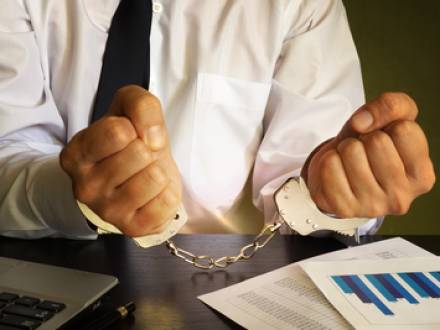Insider Trading Charges: Defense Strategies and Legal Risks
 By some estimates, insider trading – a white-collar crime - goes on at least four times more than regulators catch and prosecute. Despite this, insider trading is one of the most closely scrutinized white-collar crimes in the financial world. When one person buys or sells securities based on material, non-public information that affords him or her an unfair advantage over other "regular" investors, this is known as insider trading.
By some estimates, insider trading – a white-collar crime - goes on at least four times more than regulators catch and prosecute. Despite this, insider trading is one of the most closely scrutinized white-collar crimes in the financial world. When one person buys or sells securities based on material, non-public information that affords him or her an unfair advantage over other "regular" investors, this is known as insider trading.
Insider trading violations can result in severe civil and criminal penalties, including substantial fines and imprisonment. If you are facing allegations of insider trading, it is important that you understand the potential legal penalties as well as defense strategies that could result in the charges being dropped, lowered, or could result in a not-guilty verdict. Since insider trading is usually a federal crime with both civil and criminal penalties, it is advisable to consult an experienced Dallas, TX white-collar crimes lawyer.
Is Insider Trading a Federal or State Crime?
Insider trading is usually charged as a federal crime and is regulated under the Securities Exchange Act of 1934. The Securities and Exchange Commission (SEC) and the Department of Justice (DOJ) are the primary federal entities that investigate and prosecute insider trading cases. While federal laws largely govern insider trading cases, there are certain instances where state laws or local regulations may apply. It is essential that those charged with insider trading have a highly skilled attorney who is well-versed in defending federal white-collar crimes.
Legal Trading by Insiders vs. Illegal Insider Trading
When company executives, directors, or large shareholders buy or sell their company’s stock, following specific rules and filing transactions with the SEC, this is legal trading by insiders. Illegal insider trading occurs when individuals make trades based on information that is not publicly available, thereby giving them an unfair advantage over other investors.
If a person overhears a conversation regarding a company merger in a public place and acts on that information with no direct connection to the company, it is probably not considered insider trading. This is assuming the person had no reason to believe it was privileged or confidential.
The SEC monitors trading volumes and utilizes advanced data analytics to detect suspicious activities and identify individuals engaged in insider trading. When they see a spike in trading volume with no public news to explain it, the SEC may decide to investigate to see whether anyone involved in the trades may have had non-public information. Internal audits, whistleblower tips, and collaboration with other regulatory agencies enable the SEC to detect and prevent illegal insider trading, thereby maintaining a transparent and fair market for all.
What Are the Penalties for Insider Trading?
The maximum federal penalty for insider trading is 20 years in federal prison and a maximum fine of $5 million for an individual. An entity convicted of insider trading could pay as much as $25 million in fines. Civil penalties for an individual could be up to three times the profit gained or lost as a result of the insider trading violation. Insider trading is a complex area of federal law that often results in additional charges, including bank fraud, wire and mail fraud, computer fraud, tax fraud, obstruction of justice, and racketeering.
Defenses to Charges of Insider Trading
While the specific defense will depend on the individual circumstances and facts of the case, the most common insider trading defenses include:
- Lack of materiality (the information was not significant enough to influence an investor’s decision)
- The defendant possessed no insider knowledge at the time of the trade.
- The information was already public.
- There was no intent to defraud
Contact a Dallas, TX Securities Fraud Lawyer
If you are facing insider trading charges, the sooner you have an experienced Texas securities fraud attorney from Spencer & Associates, the better your chances of the best outcome possible. Our attorneys have successfully handled some extremely high-profile fraud defense cases. We strive to avoid litigation whenever possible, but are always prepared to defend our clients in court when necessary. We also have extensive experience in recovering seized assets. To schedule your free consultation, call 214-385-8500.




